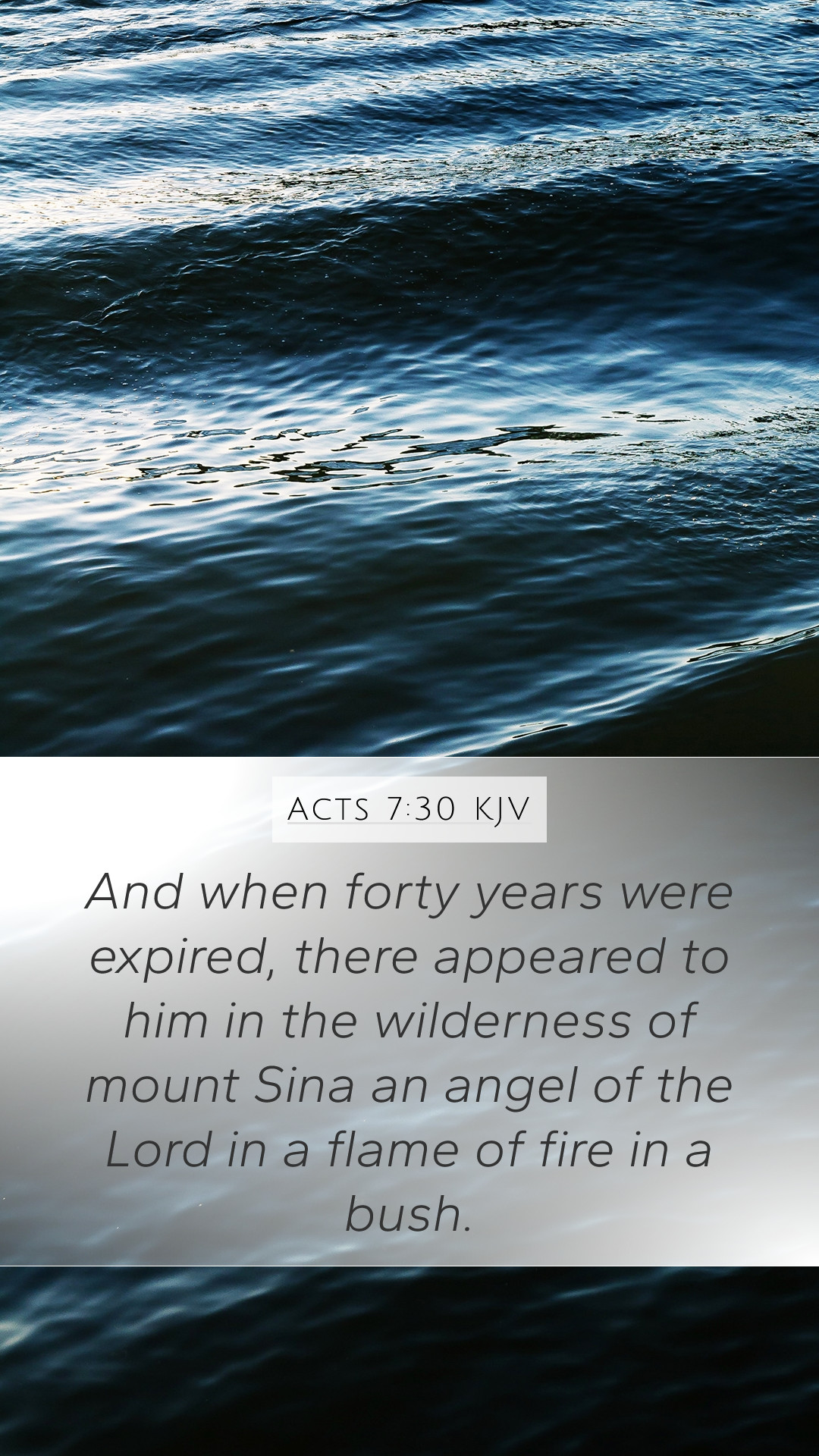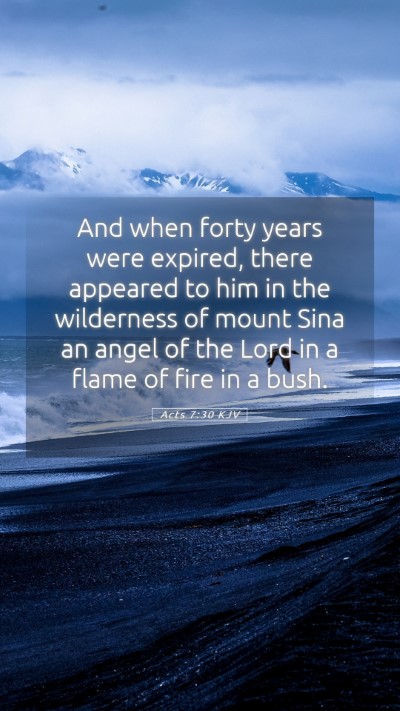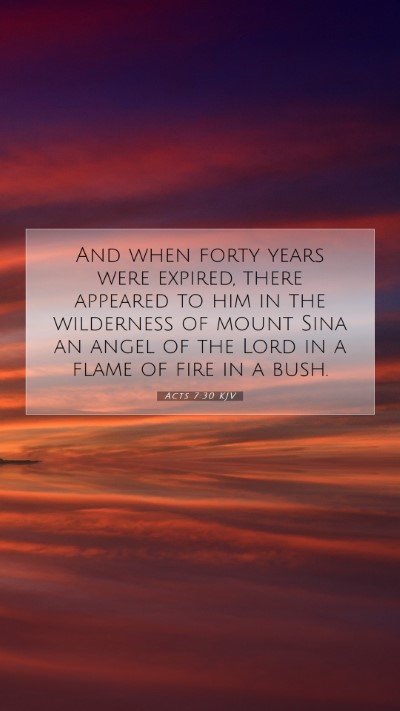Understanding Acts 7:30
Acts 7:30 reads: "And when forty years were expired, there appeared to him in the wilderness of Mount Sinai an angel of the Lord in a flame of fire in a bush." This verse is pivotal in the narrative of Moses and serves as an important part of Stephen's sermon before the Sanhedrin. Below is a comprehensive analysis of its meaning drawn from various public domain commentaries.
Bible Verse Meanings
This verse highlights a crucial moment in Moses' life when God intervened to call him into service. The number 'forty' is significant in the Bible, often representing a period of testing and preparation. In this context, it indicates that Moses had spent forty years in Midian, which was essential for preparing him for his divine mission.
Bible Verse Interpretations
- Divine Timing: According to Matthew Henry, the mention of 'forty years' signifies the fullness of God's timing. It emphasizes that God’s actions do not occur hastily; there is often a waiting period that is part of God’s plan.
- The Burning Bush: Albert Barnes notes that the burning bush symbolizes the holiness of God and His presence. The flame that does not consume the bush illustrates that God preserves what He calls and anoints, indicating His power over nature.
- Witnessing God: As explained by Adam Clarke, the appearance of the angel of the Lord signifies a direct communication from God, transforming a mundane encounter into a pivotal spiritual moment for Moses.
Bible Verse Understanding
Understanding Acts 7:30 requires recognition of its historical and spiritual context. Moses’ experience reflects God's method of calling the chosen leaders in Scripture. In this case, it is a call to lead the Israelites out of Egyptian bondage.
Application of the Verse
For modern-day believers, this verse serves as a reminder of the importance of preparation and waiting for God’s timing. Just as Moses was prepared through years of experience, individuals today are encouraged to see their own life experiences as part of God's preparation for their future roles in His plan.
Scripture Analysis
- The wilderness setting reflects a theme of isolation often connected to divine encounters throughout the Bible. It denotes a place where distractions cease, and one is prone to hear God’s voice more clearly.
- The flame and angel are remnants of theophany in Scripture, showing how God often chooses dramatic manifestations to reveal His purpose.
Biblical Exegesis
Acts 7:30 fits into the broader narrative of Acts where Stephen argues for the continuity of God’s work from the Old Testament to the New Testament. The events surrounding Moses pave the way for understanding God's redemptive plan through Jesus Christ.
Related Bible Cross References
- Exodus 3:2 - The account of the burning bush.
- Hebrews 11:24-27 - Discussing Moses' faith and choices.
- Acts 7:29 - The previous verse references Moses fleeing Egypt.
- Exodus 2:11-15 - The early life of Moses and his initial attempts to intervene for the Israelites.
- Isaiah 43:2 - God's assurance during trials, similar to Moses’ journey.
Bible Study Insights
This verse can spark deep discussions in bible study groups or during online bible study sessions as it touches upon various themes such as divine calling, preparation, and God's unwavering presence. It invites questions about personal experiences where individuals may have felt 'called' or prepared for service.
Conclusion
In summary, Acts 7:30 encapsulates a profound moment in the biblical narrative of Moses. Through understanding this verse, believers gain insights into God's timing and the significance of preparation in fulfilling one's divine purpose. By studying such passages, one can deepen their bible verse understanding and enhance their bible study insights.


